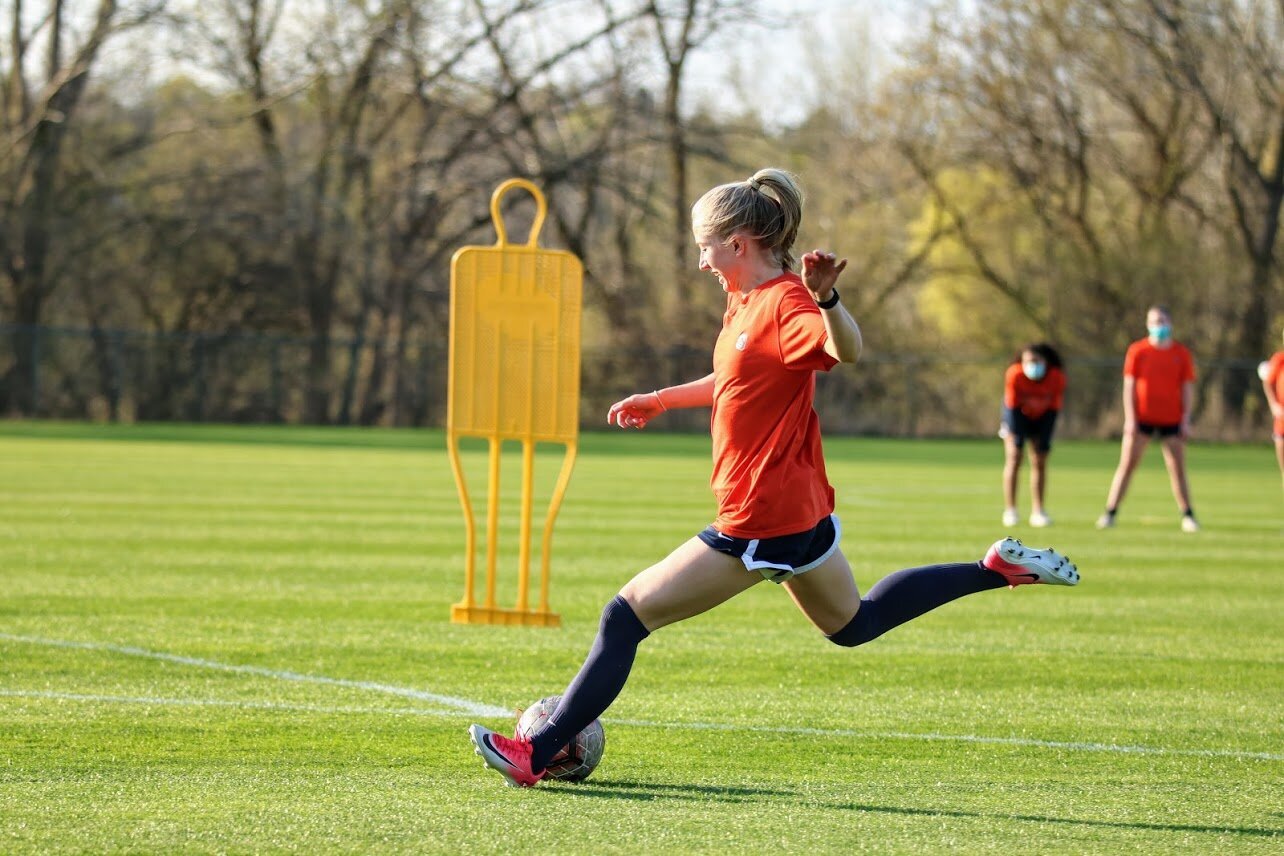An Unexpected Lesson in Confidence
A week ago, my team had a meeting with one of Syracuse’s sports psychologists. We meet with her weekly to work on maximizing our mental performance. This time, we were talking about confidence: what it means, why it’s important, etc. During the session, we were asked to make a list of things we are confident in and things we are not confident in when it comes to soccer. After a few minutes of silent scribbling, the psychologist opened the floor: “Who’s willing to share what they’re confident in?”
We all glanced around the room, waiting to see who’d go first. Our assistant coach, Brandon, shot his hand up: “I’ll go!” He explained that he’s really confident on PKs—whether it be taking or saving them (he used to be a goalkeeper). When asked about what he wrote down on his not-so-confident list, though, he came up blank.
“Nothing,” he said. A few of us snickered, waiting for him to give his real answer. He turned to the room, smiling but serious: “No, I mean it. I’m confident in everything when it comes to soccer.” He almost seemed surprised that we were questioning him.
I rolled my eyes and laughed—thinking of every crappy pass he’s ever given me or every goal I’ve scored on him in practice. “Bullshit,” I called out jokingly. We went around the room and finished the exercise, coming back to Brandon periodically. But he stood firmly by his claim.
Initially, I dismissed it as Brandon being Brandon. But then I got to thinking... what if I thought like that? I looked down at my own list, my teammates lists—all of them were filled in both columns. We had no problem picking out what we weren’t confident in. In fact, when we shared aloud, most of us expressed that it was actually harder to admit what we were confident in. The psychologist explained that sometimes we’re overly critical and fail to credit ourselves with what we’re good at, resulting in a lack of confidence.
“I just don’t want to be unrealistic,” one of my teammates said. I remember thinking the same thing. But Brandon seemed to have no problem being unrealistic.
This reminded me of a quote I read from Anson Dorrance (the man behind UNC’s soccer dynasty) on the difference between coaching men and women: “I never met a male athlete whose felt he made a mistake in athletic competition in his life... with women, if you make a general criticism, every woman on the team thinks you’re just talking about her.”
In the moment, it felt like I was watching that quote unfold before my eyes. The women in the room were quick to criticize themselves and downplay their successes, but Brandon (the only man on staff) was just the opposite. I can’t help but believe that part of this is due to the differences in the way we raise men and women. In general, we teach boys to be confident, bold leaders, and we teach girls to be thoughtful, humble team-players. This obviously isn’t always the case, but nobody can deny the fact that these sexist undertones still exist in our society. And as a female athlete, I can certainly attest to their weight.
Now, let’s be real. Brandon was being overly confident. I’m not saying that’s always a great thing—there is value in self-reflection. But damn, can you imagine how good I could be if I played with that type of confidence? How many more risks I’d take? How many more goals I’d score?
I’ve thought about this a lot since that meeting, and I know I could benefit from adopting that sort of attitude. A lot of us could. That’s not to say I’d be perfect in everything, but rather, I’d believe that I could do anything without fear of failure. That’s what Brandon was really trying to say: not that he’s perfect, but that he fully believes in his abilities when he steps on the field. I’ve developed a little reminder for myself when I’m being too critical: “Think like Brandon.” Is it unrealistic? Maybe. But did Brandon care? Not at all. So why should we?


